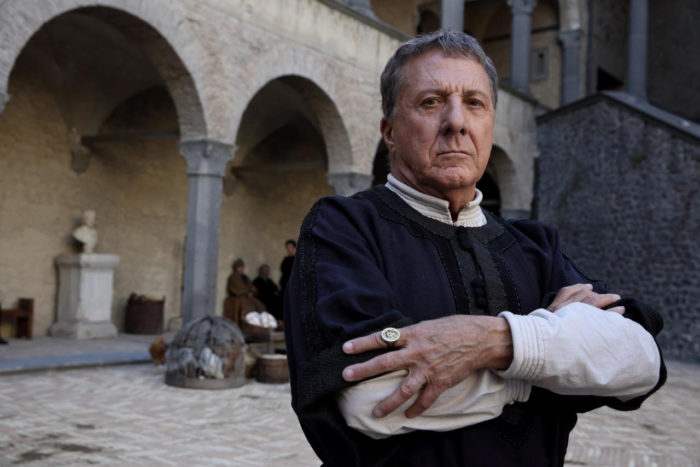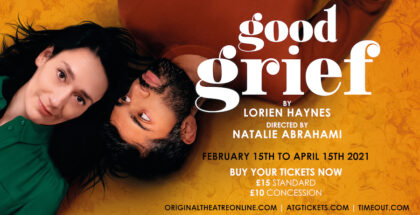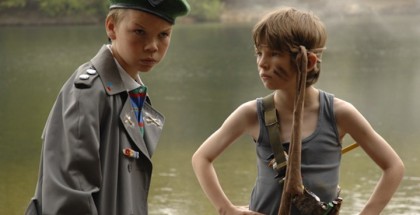First look Netflix UK TV review: Medici: Masters of Florence
Review Overview
Script
6Historical accuracy
7Entertainment value
5Helen Archer | On 18, Dec 2016
It’s almost impossible to watch a big budget historical drama these days without somehow comparing it to Game of Thrones. And when the show stars Richard Madden, best known to most as Robb Stark of the North, strolling around early 15th century Florence, purveying the countryside with its city walls in the distance… well. While you know it’s unreasonable to expect a dragon to fly into view, you can’t help but hope.
Sadly for everyone concerned, not least the viewer, this is no Game of Thrones. This is Medici: Masters of Florence, which Netflix has picked up after a successful run in Italy. It tells the story of the influential Medicis, the founders of one of the first banks in Europe. Following their humble beginnings and their journey to political and royal prominence, the show examines their funding of the Italian Renaissance, and their influence on catholicism, as the force behind the election of several popes.
Madden stars as Cosimo, son and heir apparent of the patriarch of the dynastic family, Giovanni (Dustin Hoffman). Despite all the historical exposition, this is a family drama at heart. It’s no coincidence that it begins with a death reminiscent of Don Corleone’s, as Giovanni, content in his vineyard overlooking a pastoral landscape, chokes on some fruit, and slumps to the ground. Like Corleone, Giovanni manages a family (and a family business) with an iron fist, and, like Corleone, he leaves behind his sons – one of whom has been reluctantly groomed for leadership, the other, Lorenzo (Stuart Martin), pushed to one side.
There is, too, something of The Da Vinci Code here, as a hooded assassin watches over Giovanni’s last breaths. The programme makers have taken some artistic licence in this respect, as there was no evidence that Medici was murdered – but it gives the show a mystery to focus on, should the world of 15th century banking somehow not be exciting enough. The hooded figure will pop up sporadically over the course of the next few episodes, watching from balconies as the action takes place in courtyards below, perhaps attempting to poison-by-hemlock other members of the family (although it’s uncertain how much can just be put down to gastroenteritis when Cosimo’s daughter-in-law falls ill), and Cosimo’s right hand man makes several visits to the apothecary (who, of course, is blind in one eye) to try to find the source of the poison.
Anyway, Giovanni’s death plunges us into a narrative told on two timelines. In the present, Cosimo becomes the reluctant head of the family, while the story of Giovanni’s golden time of rule and the persuasion of his son to surrender his artistic dreams to gain political and financial power, is told in flashback.
Cosimo’s early enthusiasm for art is shown, as he sketches churches in courtyards, stares dreamily at the ceilings of cathedrals, and, while in Rome, gets involved with a group of hedonistic artists, where he meets his one true love, Bianca (Miriam Leone), only for his family to tear the couple asunder due to her being a lower class laundress. Forced to marry Contessina (Annabel Scholey) for convenience (Game of Thrones fans will thrill at the casting of Walder Frey as his father-in-law), he bows to the will of his domineering family and takes up the family business. All is revealed in flashback, yet in the present, with his father now dead and possessing both the money and the will, Cosimo may be able to fulfil his long-held artistic desire of completing the duomo of Florence’s cathedral after all.
While this all looks great, in the manner of big budget historical epics – all glossy landscapes and attractive cast – there is something of a tonal problem at play, exacerbated by the script. Historical figures like Brunelleschi pop up to declare “I am a genius, ahead of my time!”, but the flashbacks don’t work particularly well because no one ages, so it’s difficult to tell which time period we’re in. Characterisation is flimsy, and there is no one to really care about. Hoffman, meanwhile, is terribly miscast, seeming like he stepped in from some other film – certainly from some other place and time, a couple of centuries out, a little like Scott Bakula, if Quantum Leap ventured as far back as the 1400s.
It’s a fascinating time in history, and yet the programme doesn’t seem to have the courage of its convictions to convey it, instead opting for more conventional made-up murder and lost-love contrivances. By the end of the second episode, a war we haven’t seen and barely heard about is over, but there are more serious problems to contend with, as the (historically very real) spectre of the black death rears its head. Whether the remainder of the series has the courage to tell the real history without all the added extras remains to be seen, but it would doubtless be better for it.
Medici: Masters of Florence is available on Netflix UK, as part of an £9.99 monthly subscription.




















